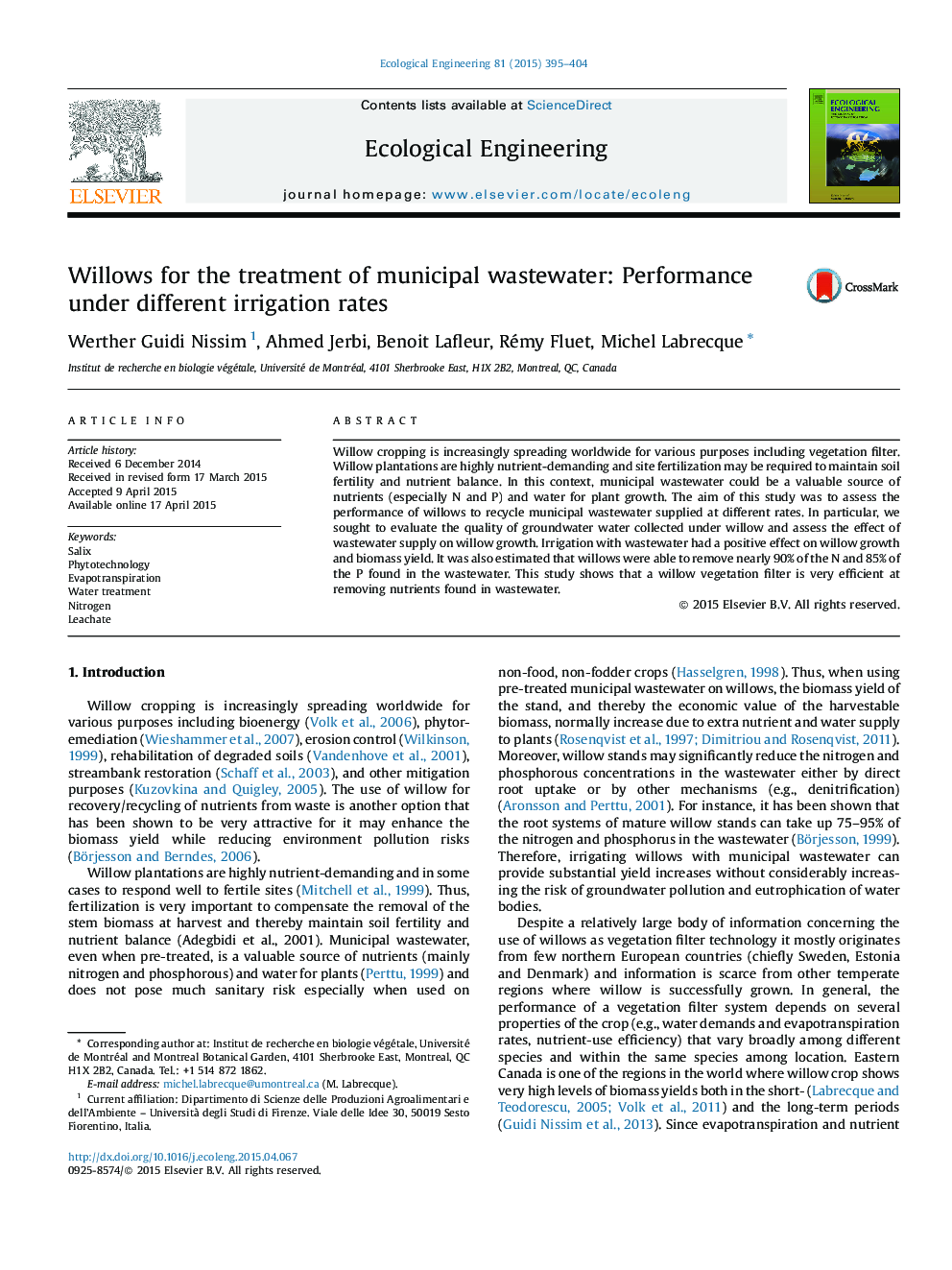| Article ID | Journal | Published Year | Pages | File Type |
|---|---|---|---|---|
| 4389097 | Ecological Engineering | 2015 | 10 Pages |
•Urban wastewater may threaten aquatic environments.•Urban wastewater can be used as a fertilizer for plants rather than discharged in the environment.•The performance of a willow vegetation filter to treat wastewater over several years was assessed.•Over the long-term, a willow vegetation filter is efficient at uptaking nutrients found in wastewater.•Willow high nutrient retention and fast growth explain the filter efficiency.
Willow cropping is increasingly spreading worldwide for various purposes including vegetation filter. Willow plantations are highly nutrient-demanding and site fertilization may be required to maintain soil fertility and nutrient balance. In this context, municipal wastewater could be a valuable source of nutrients (especially N and P) and water for plant growth. The aim of this study was to assess the performance of willows to recycle municipal wastewater supplied at different rates. In particular, we sought to evaluate the quality of groundwater water collected under willow and assess the effect of wastewater supply on willow growth. Irrigation with wastewater had a positive effect on willow growth and biomass yield. It was also estimated that willows were able to remove nearly 90% of the N and 85% of the P found in the wastewater. This study shows that a willow vegetation filter is very efficient at removing nutrients found in wastewater.
